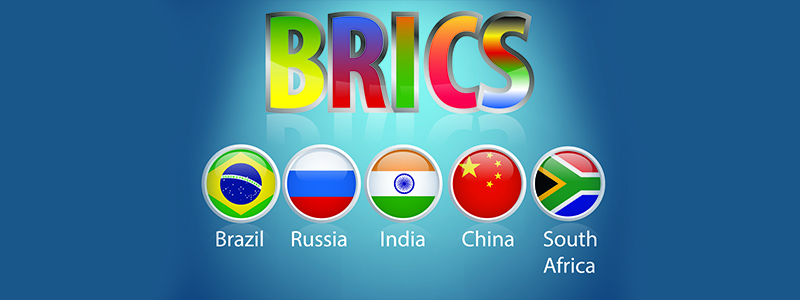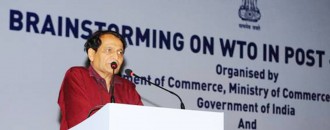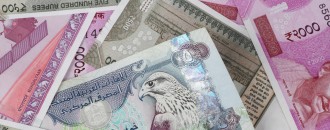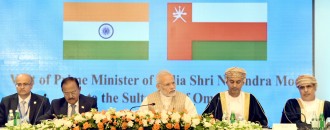
Union Cabinet approves setting up of NDB and BRICS CRA
The Dollar Business Bureau  In one of the first and the most important steps towards economic cooperation of BRICS countries for pursuance of common goals, the Union Cabinet chaired by the Prime Minister, Narendra Modi, on Wednesday, gave its approval for establishing the New Development Bank (NDB) and the BRICS Contingent Reserve Arrangement (CRA). The New Development Bank will mobilise resources for infrastructure and sustainable development projects in BRICS and other emerging economies and developing countries, to supplement existing efforts of multilateral and regional financial institutions for global growth and development. The establishment of the Bank will help India and other signatory countries to raise and avail resources for their infrastructure and sustainable development projects. It would also reflect the close relations among BRICS countries, while providing a powerful instrument for increasing their economic cooperation. The BRICS CRA proposes to provide short-term liquidity support to the members through currency swaps to help mitigating BOP crisis situation, in case such a situation arises. The BRICS CRA will help India and other signatory countries to forestall short-term liquidity pressures, provide mutual support and further strengthen financial stability. It would also contribute to strengthening the global financial safety net and complement existing international arrangements (from IMF) as an additional line of defence. The Agreement will enter into force and the Bank will begin operations only after all member countries deposit their instruments of ratification with Brazil. It will also provide the force of law to the commitments made by India in the inter-governmental agreement of the NDB including privileges and immunities that are to be extended to the Bank and its employees as specified in the Articles of Agreement. Central Banks of the member countries will also have to finalize an Inter-Central Bank Agreement containing the operational details of swap transactions and the Standing Committee's Operational Procedures (SCOP) before the arrangement can be operational. Signing of the Agreement for the establishment of the New Development Bank is expected to allow India to raise and obtain more resources for the much needed infrastructure development, the lack of which is coming in the way of inclusiveness and growth as of now. Besides, the governance structure and decision making in the Bank will be equitable unlike the existing multilateral development banks. So far infrastructure financing in India has been done from two public sources: Government and existing multilateral development banks. These have been supplemented by private sector contributions through Public-Private Partnership projects. However, in the context of fiscal consolidation, declining resources of existing MDBs and risk-averse private sector, the New Development Bank to be established by BRICS countries will make available additional resources thereby recycling the savings accumulated in emerging countries which are presently being locked up in Treasury bonds having much lower returns.
In one of the first and the most important steps towards economic cooperation of BRICS countries for pursuance of common goals, the Union Cabinet chaired by the Prime Minister, Narendra Modi, on Wednesday, gave its approval for establishing the New Development Bank (NDB) and the BRICS Contingent Reserve Arrangement (CRA). The New Development Bank will mobilise resources for infrastructure and sustainable development projects in BRICS and other emerging economies and developing countries, to supplement existing efforts of multilateral and regional financial institutions for global growth and development. The establishment of the Bank will help India and other signatory countries to raise and avail resources for their infrastructure and sustainable development projects. It would also reflect the close relations among BRICS countries, while providing a powerful instrument for increasing their economic cooperation. The BRICS CRA proposes to provide short-term liquidity support to the members through currency swaps to help mitigating BOP crisis situation, in case such a situation arises. The BRICS CRA will help India and other signatory countries to forestall short-term liquidity pressures, provide mutual support and further strengthen financial stability. It would also contribute to strengthening the global financial safety net and complement existing international arrangements (from IMF) as an additional line of defence. The Agreement will enter into force and the Bank will begin operations only after all member countries deposit their instruments of ratification with Brazil. It will also provide the force of law to the commitments made by India in the inter-governmental agreement of the NDB including privileges and immunities that are to be extended to the Bank and its employees as specified in the Articles of Agreement. Central Banks of the member countries will also have to finalize an Inter-Central Bank Agreement containing the operational details of swap transactions and the Standing Committee's Operational Procedures (SCOP) before the arrangement can be operational. Signing of the Agreement for the establishment of the New Development Bank is expected to allow India to raise and obtain more resources for the much needed infrastructure development, the lack of which is coming in the way of inclusiveness and growth as of now. Besides, the governance structure and decision making in the Bank will be equitable unlike the existing multilateral development banks. So far infrastructure financing in India has been done from two public sources: Government and existing multilateral development banks. These have been supplemented by private sector contributions through Public-Private Partnership projects. However, in the context of fiscal consolidation, declining resources of existing MDBs and risk-averse private sector, the New Development Bank to be established by BRICS countries will make available additional resources thereby recycling the savings accumulated in emerging countries which are presently being locked up in Treasury bonds having much lower returns.
This article was published on February 25, 2015.






 to success.
to success.